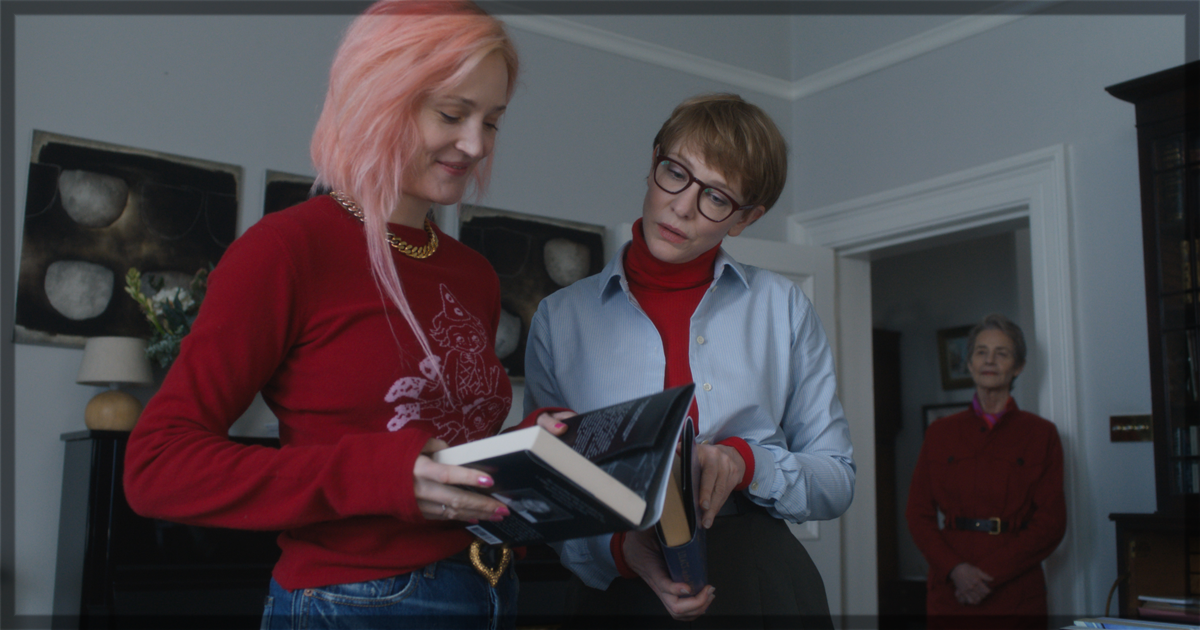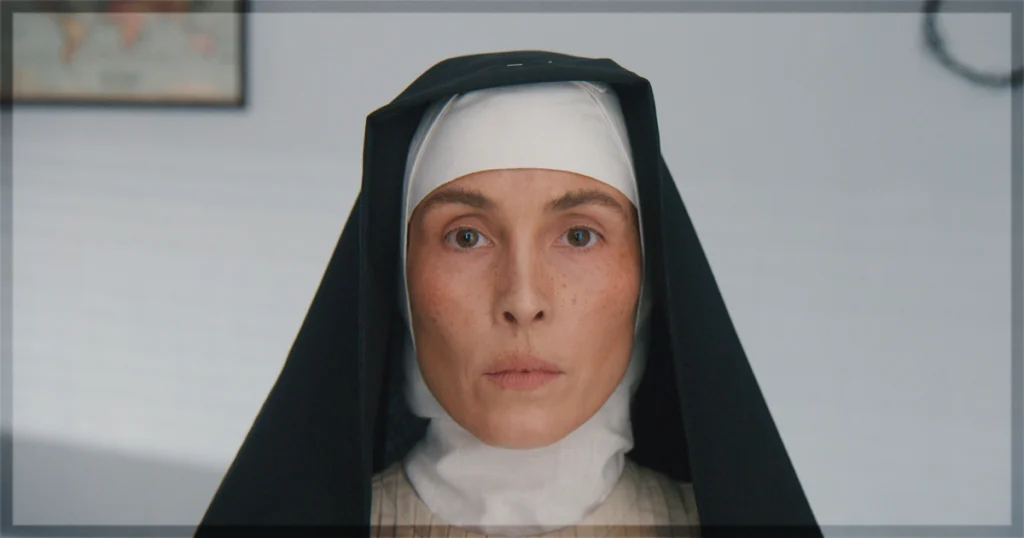It’s not really a surprise that Jim Jarmusch has won the Golden Lion at this year’s Venice Film Festival for Father Mother Sister Brother. He has always been a major filmmaker working in a minor key, and here we have another one of his portmanteau films, this time three thematically linked short stories about adult siblings visiting home. The sequences, which take place in rural New Jersey, Dublin and Paris, all include the following: two car rides, the word “nowheresville,” the phrase “Bob’s your uncle,” a Rolex, some young men on skateboards and a realisation by the children that their parents contain mysteries. And yet one of the sections works significantly better than the other, mainly because that family actually likes each other. Otherwise this is a story about people hiding their true selves from the people you’d think they’d know best. The trouble is, everyone involved in this forgot the point of hide-and-seek is to eventually be found.
In the first section, siblings Emily (Mayim Bialik, a surprising choice that really works) and Jeff (Adam Driver) are doing their first joint visit to their father (Tom Waits) in his new home since the death of their mother. There was an incident at the funeral some years previously for which Emily has not forgiven her dad, and she is surprised that Jeff has been continuously lending him money in the meantime. He even brings a crate of high-end groceries as a treat, but otherwise the visit is strained and stilted, with all three people visibly swallowing things they would like to say but don’t. As a check-in on an elderly parent this is fine, and the weirdness Mr. Waits brings to his part really lands, but sitting through someone else’s awkward family reunion doesn’t spark joy.
In the second section, an English mother (Charlotte Rampling) in Dublin prepares an elaborate high tea for her daughters who she saddled with the names Timothea (Cate Blanchett) and Lilith (Vicky Krieps). Despite them all living in the same, not very large city, this annual tea is the only time all year they see each other, and it’s the cause of such stress the mother has an emergency phone consult with her therapist about it. Lilith has pink hair and is secretly a lesbian, with her partner Jeannette (Sarah Greene) grudgingly posing as an uber driver when dropping her off. Timothea is repressed (and it’s hard to believe there can be so little to say about a character played by CATE BLANCHETT) and their mother is an extremely successful novelist who doesn’t like to talk about her books. Therefore this section is, despite the gargantuan talent around that table, by far the weakest, mainly because Mr. Jarmusch’s script never quite manages to figure out why any of them are there. Its cultural knowledge is also poor. PG Tips (an English brand of tea) as a luxury item? Anyone actually going through day-to-day life in Ireland telling people their names are Lilith or Timothea? Please.
Finally in Paris twins Sky (Indya Moore) and Billy (Luka Sabbat, by far the best thing about the movie) are closing out their childhood apartment after their parents’ recent death in a plane crash. Sky lives in New York and has come back to say goodbye so Billy takes great pride in showing the treasures he’s found: old driver’s licenses, childhood drawings, a cool pair of sunglasses and the realisation that their parents managed to take many secrets to the grave. This section is the strongest thanks to the fondness the siblings have for each other, and possibly also because there are no awkwardly living parents to ruin the siblings’ reconstruction of their lives.
So what is the point? The subtlety on display here is so subtle that it is very tough to watch, and it takes a while to realise Godot will never come. And while it’s not always possible to reach across the chasm of family history to have a happy relationship with your blood relatives, statis is not a compelling watch. The choice of Ms. Rampling as a mother whose parenting is done, over, finito – and who expresses contempt that these adults might still want her care and attention sometimes – makes this brilliantly clear. And yet. Mr. Jarmusch’s work has always been about playing with and subverting our expectations, but there’s a reason why plots are meant to include people changing, to provide the audience a reason to come along for the ride. It’s nice this exists, but award-winning or not, there’s just not enough here to see.
Father Mother Sister Brother recently played at the Venice International Film Festival.
Learn more about the film at the official Venice site for the title.
You might also like…
‘Mother’ Film Review: Noomi Rapace’s Turn as Mother Teresa


